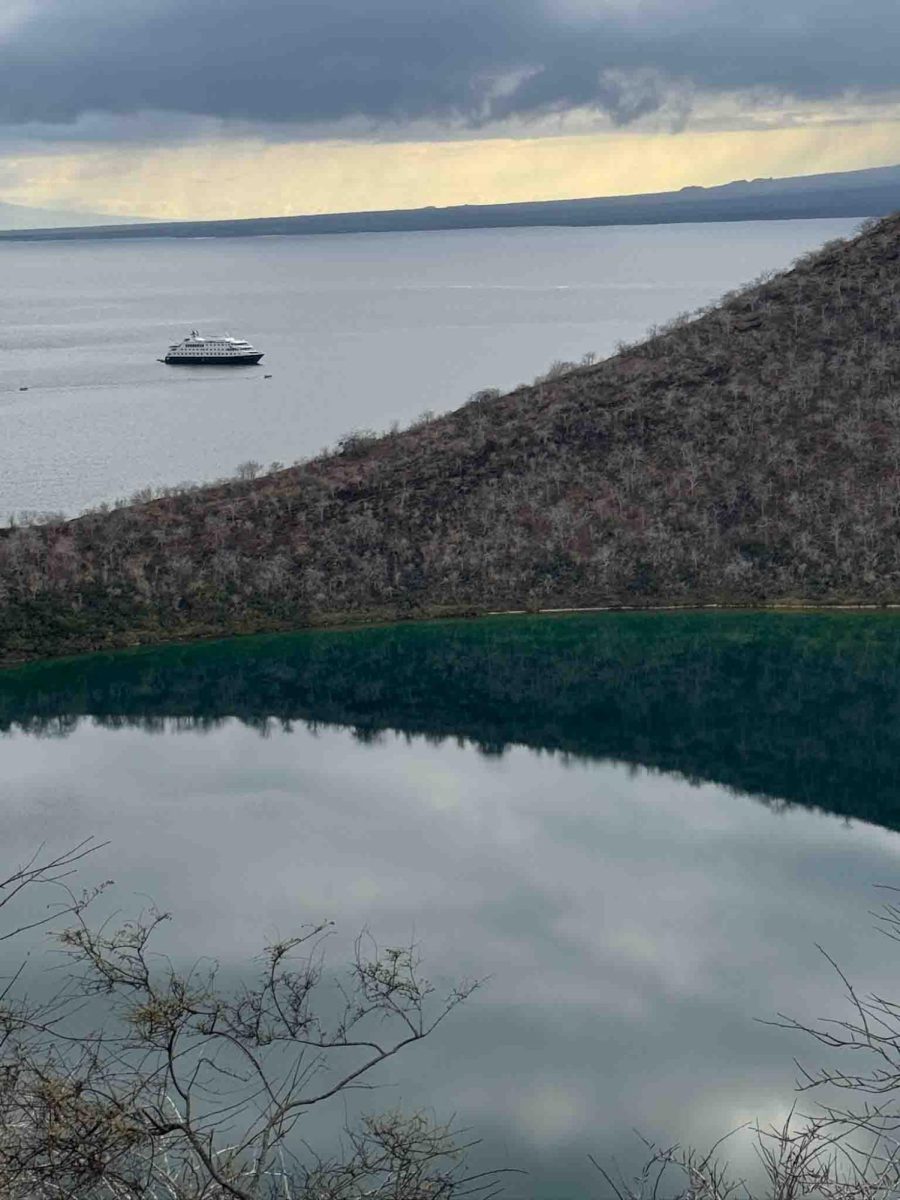New Year’s Eve. Parties, family, food, drinking. An Ecuadorian tradition in which giant scarecrow-like figures that resemble pop culture figures are burned during the “los años viejos” (the old years) celebration. This celebration symbolizes starting the new year fresh in the touristy South American country. I was lucky enough to witness (and hear) this fun tradition with my family at the end of 2023.
The year 2024 started with a security warning though. On January 7, 2024, Los Choneros gang leader José Adolfo Macías Villamar – more commonly known by his nickname, Fito – escaped from prison just hours before his scheduled move to a higher security detention. Shortly after, two security guards were detained for allegedly helping Macías escape.
The next day, even more craziness happened. Riots were held in jails, guards were taken hostage by prisoners, and 39 inmates escaped from various jails. Ecuadorian President Daniel Noboa declared a “state of internal armed conflict” and declared a country-wide curfew. No one is allowed on the streets between the hours of 11 p.m. and 5 a.m. unless they were tourists catching a flight. Noboa also declared 22 Ecuadorian gangs as terrorist organizations.
January 9 was even more violent and surprising. A television station was attacked by a gang on live TV. All 13 attackers were armed, and before the live coverage cut out, one of the masked attackers was heard saying that the attack was because the authorities were “messing with the mafias.” All of the attackers were captured and detained. Peru also declared a state of emergency because of the border they share with Ecuador, according to Al Jazeera News.
All of this violence was almost expected. In August of 2023, presidential candidate Fernando Villavicencio was assassinated on his campaign trail shortly after a rally, mere weeks before the presidential election was scheduled to take place. His death occurred after multiple death threats from the Los Choneros gang.
September of 2023 was also out of the ordinary, with gangs bombing multiple places (including a very important bridge). This caused schools in Guayaquil and Duran to close for a few days in late September in an effort to keep the children safe.
I was recently in Ecuador visiting the Galapagos Islands with my family for New Year’s. Our plane took off from Guayaquil (where Macías escaped from jail) at 5:52 a.m. on January 7, 2024. One of my friends was still at a hotel in downtown Ecuador on January 7. The situation was definitely scary, especially after considering the “what ifs.” What if we had a later flight and were driving to the airport while Macías was on the road? What if we made it to the airport for that later flight, but the flights stopped leaving and we were stuck?
On the surface, the disturbing news was actually pretty surprising. When my family and I originally landed in Guayaquil (which was really just a stop on our way to the incredible Galapagos archipelago), we walked around downtown for a little while. Which, looking back on it, was probably not the best idea because of the security warnings (which we didn’t know about until after getting back to the hotel)… Anyway, while we were exploring, I couldn’t help but notice all of the life in the streets. Everyone looked like they had a mission and everyone looked like they were truly alive and present in the moment.
The more I started to hear about the Ecuadorian crisis, the more the problem behind all of it also became clear. According to an AP News article, Ecuador had two main export items, bananas and cocaine. Drug smugglers (which happen to be some of the same mafias and gangs that have been escaping from jail and killing innocents) have begun to smuggle cocaine to Europe and the United States in banana crates. These drug sales are where most of the funding that has allowed these terrorists to have so much power comes from.
According to the National Institute on Drug Abuse, 1.7% of the United States population (or approximately 4.8 million people) are addicted to cocaine. This means that as a country, we (along with a few European countries) are responsible for funding these deadly gangs.
The responsibility and role that we play as Americans in funding the violence has to stop. While not even the majority of the US population is responsible for contributing to the violence, those who have bought drugs from Ecuadorian sources are responsible for the deaths of thousands. As a country, we need to crack down on drug dealings. All kinds of drugs end up killing US citizens every year, and although the United States has made an effort to cut back on the drug issue with multiple prevention programs, we need to do better, because it has gotten out of hand.
The issue needs to be a priority for our country and government administrations. Although the Biden Administration has in the past made strides to keep deadly drugs out of the community, nothing very recent has been done (at least publicly).





